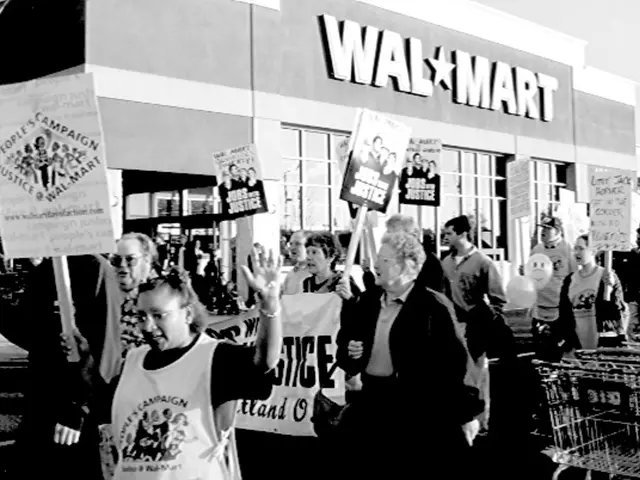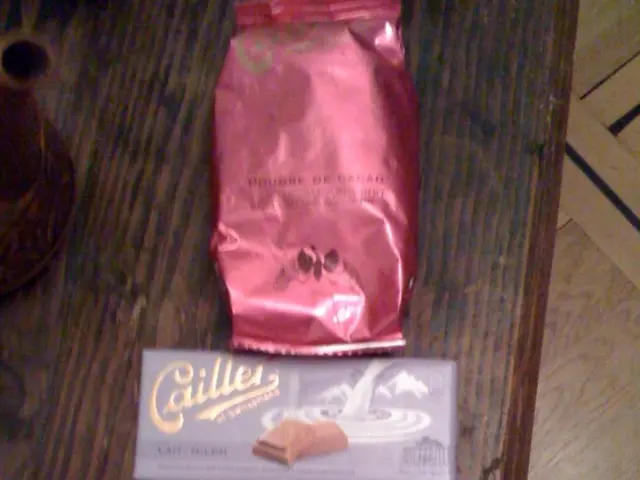Presidential Race Tightens as Venezuela Approaches July 28 Election
Venezuela's 2024 Election Shakeup: Opposition Unites Behind Edmundo González Urrutia
Embark on a rollercoaster ride through Venezuela's political landscape, as we delve into the latest developments heading into the July 28 presidential election. Buckle up!
In a surprisingly swift shift, the US-backed Venezuelan opposition has thrown its weight behind a single candidate: Edmundo González Urrutia. On Tuesday, the consolidated opposition party A New Era (UNT) confirmed that they are backing González Urrutia, the declared choice of the self-proclaimed Democratic Unitary Platform (PUD).
Previously, UNT had registered its leader Manuel Rosales for the election ahead of the March 25 deadline. However, political outfits were given until April 23 to replace their candidate with someone already on the ballot, according to the National Electoral Council (CNE).
Last week, Zulia Governor Rosales announced his decision to drop out of the race and endorse González, following an agreement among mainstream opposition parties. Rosales, who lost to former President Hugo Chávez in 2006, had pledged his support to an eventual unity candidate after filing his candidacy at the eleventh hour.
Initially, González was viewed as a "placeholder candidate" as anti-government forces scrambled for a consensus. However, the PUD declared a "unanimous" decision in his favor on Friday.
Born in 1946, González Urrutia has enjoyed a long career in diplomacy but has been absent from Venezuela's political scene for several years. His most recent post was as ambassador to Argentina before being replaced in 2002 after publicly endorsing a coup against Chávez.
The political landscape is becoming increasingly complex, with opposing forces within the opposition jostling for position. While Movement for Venezuela (MPV) followed UNT in switching support from Rosales to González, Fuerza Vecinal instead opted to back center-right candidate Antonio Ecarri. This decision has sparked infighting within the party, with high-ranking members vowing to campaign for González instead.
González held his first meeting with PUD high-ranking officials on Wednesday to discuss electoral strategy, but controversy quickly surrounded the former ambassador after a leaked phone call from 2015 surfaced, featuring him making misogynistic and racist comments.
Meanwhile, far-right candidate María Corina Machado has publicly endorsed González, despite her own political ban being upheld by Venezuela's Supreme Court in January. Machado initially vowed to stay in the presidential race "until the end" and expressed hope that Washington's threat of additional economic coercive measures would force her into the ballot. On Wednesday, she pledged to continue campaigning, stating that González would "eventually assume the responsibilities associated with a presidential bid."
As the candidate field continues to narrow, Juan Carlos Alvarado (COPEI) and Luis Ratti (Democratic Right) have both announced their withdrawal and backing for Luis Eduardo Martínez (Democratic Action). Claudio Fermín is rumored to be considering the same move.
On a different note, José Brito, a right-wing candidate leading an opposition sector that broke away from the US-aligned hardliners in 2019, is reportedly engaged in discussions about unified presidential candidate negotiations.
Brito received a favorable ruling from Venezuela's Supreme Court on Tuesday, granting him control over Justice First (Primero Justicia, PJ) following a lengthy judicial dispute. Electoral authorities have given Brito a 48-hour extension to back one of the admitted candidates on the ballot. However, PJ finds itself embroiled in more judicial controversy, with three high-ranking party members disqualified from holding public office for 15 years by the Venezuelan Comptroller's Office. A further two officials from Fuerza Vecinal have also been barred, although the charges remain unclear.
Given the current political climate, it remains to be seen whether González Urrutia can effectively navigate the opposition's tightly constricted playing field as they strive towards unseating President Nicolás Maduro.
Amidst the ongoing opposition developments, Maduro and high-ranking United Socialist Party (PSUV) figures maintain their confidence in Maduro's reelection bid. During an international summit on Wednesday, Maduro promised that the Venezuelan people would "teach a historical lesson" to the "fascist right" advocating for sanctions and foreign invasions.
Hold tight, folks! The race for Venezuela's highest office is gearing up to be one wild ride!
Enrichment Insight:The election, initially scheduled for July 28, 2024, was set against a backdrop of tense international relations, with Venezuela facing ongoing strains with neighboring countries and the international community. For instance, there were territorial tensions with Guyana[4]. Additionally, the opposition faced numerous challenges, including the arrest of opposition figures and the annulment of registrations for multiple opposition parties. These difficulties made it difficult for opposition candidates to gain a foothold and contest the election fairly. The Barbados Agreement, a negotiated agreement signed in October 2023, aimed to ensure free and fair elections, with the US offering temporary sanctions relief in exchange for these commitments[1].
- The US-backed Venezuelan opposition has switched their support from Manuel Rosales to Edmundo González Urrutia, a decision made following an agreement among mainstream opposition parties.
- González Urrutia, a career diplomat who served as ambassador to Argentina, was initially viewed as a "placeholder candidate" but was declared the unanimous choice by the self-proclaimed Democratic Unitary Platform (PUD).
- María Corina Machado, a far-right candidate with a political ban, has endorsed González Urrutia, despite initially vowing to stay in the race. Other candidates, such as Juan Carlos Alvarado and Luis Ratti, have withdrawn from the election and have backed Luis Eduardo Martínez, while Claudio Fermín is rumored to be considering the same move.
- The political landscape is complex, with opposing forces within the opposition jostling for position, leading to infighting and controversy. These intricate politics are playing out against the backdrop of ongoing war-and-conflicts and policy-and-legislation issues, making the 2024 election a key general-news event.
- Amidst the opposition developments, President Nicolás Maduro and high-ranking United Socialist Party (PSUV) figures maintain their confidence in Maduro's reelection bid, promising a historical lesson to the "fascist right" advocating for sanctions and foreign invasions.
![Unveiling enthralling visuals: A captivating display of an intriguing encounter between [individual/object names] in this stunning image. Manuel Rosales, governor of Zulia, withdrew from the competition to endorse Edmundo González of the Unitary Platform.](https://asb-media.info/en/img/20250505223045_pexels-search-image-description-relevant-keywords-from-the-headline.jpeg)







